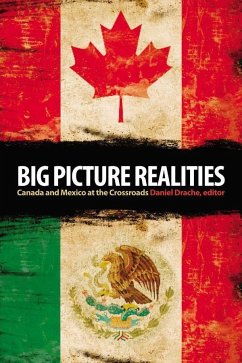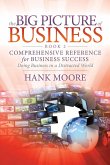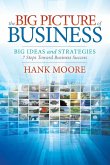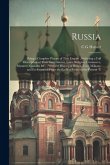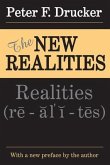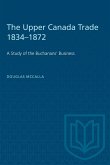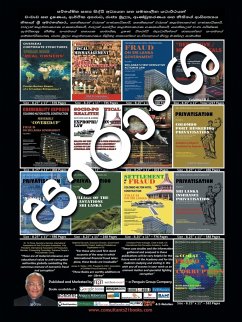Big Picture Realities
Canada and Mexico at the Crossroads
Herausgeber: Drache, Daniel
Schade – dieser Artikel ist leider ausverkauft. Sobald wir wissen, ob und wann der Artikel wieder verfügbar ist, informieren wir Sie an dieser Stelle.
Big Picture Realities
Canada and Mexico at the Crossroads
Herausgeber: Drache, Daniel
- Broschiertes Buch
- Merkliste
- Auf die Merkliste
- Bewerten Bewerten
- Teilen
- Produkt teilen
- Produkterinnerung
- Produkterinnerung
In the post-NAFTA era, Canada and Mexico face dramatic and irreversible changes from the Bush revolution in foreign public policy, the rising economic power of China and India, new concerns about border security and human rights, and the trends of economic integration. The essays in Big Picture Realities: Canada and Mexico at the Crossroads address the sea change in the political economic order of North America and chronicle the attempts of Canada and Mexico, two very different societies, to come to terms with the accumulated and often contradictory effects of micro and macro changes.…mehr
Andere Kunden interessierten sich auch für
![The Big Picture of Business, Book 2 The Big Picture of Business, Book 2]() Hank MooreThe Big Picture of Business, Book 221,99 €
Hank MooreThe Big Picture of Business, Book 221,99 €![The Big Picture of Business The Big Picture of Business]() Hank MooreThe Big Picture of Business21,99 €
Hank MooreThe Big Picture of Business21,99 €![Russia Russia]() C G HunterRussia27,99 €
C G HunterRussia27,99 €![The New Realities The New Realities]() Peter DruckerThe New Realities68,99 €
Peter DruckerThe New Realities68,99 €![The Upper Canada Trade 1834-1872 The Upper Canada Trade 1834-1872]() Douglas McCallaThe Upper Canada Trade 1834-187242,99 €
Douglas McCallaThe Upper Canada Trade 1834-187242,99 €![Painting The Picture Of Business Painting The Picture Of Business]() Emma MorrisseyPainting The Picture Of Business20,99 €
Emma MorrisseyPainting The Picture Of Business20,99 €![Researched Real Case Studies & Contemporary Realities Fraud & Corruption, Economic Crime, Public Finance, Governance & Rule of Law Researched Real Case Studies & Contemporary Realities Fraud & Corruption, Economic Crime, Public Finance, Governance & Rule of Law]() Nihal Sri AmeresekereResearched Real Case Studies & Contemporary Realities Fraud & Corruption, Economic Crime, Public Finance, Governance & Rule of Law66,99 €
Nihal Sri AmeresekereResearched Real Case Studies & Contemporary Realities Fraud & Corruption, Economic Crime, Public Finance, Governance & Rule of Law66,99 €-
In the post-NAFTA era, Canada and Mexico face dramatic and irreversible changes from the Bush revolution in foreign public policy, the rising economic power of China and India, new concerns about border security and human rights, and the trends of economic integration. The essays in Big Picture Realities: Canada and Mexico at the Crossroads address the sea change in the political economic order of North America and chronicle the attempts of Canada and Mexico, two very different societies, to come to terms with the accumulated and often contradictory effects of micro and macro changes. Contributors are Canadian and Mexican scholars and leading authorities in security, immigration, human rights, foreign policy, Canada-Mexico relations, and market integration. This book is particularly valuable for public policy experts and scholars and students in international relations.
Produktdetails
- Produktdetails
- Verlag: Wilfrid Laurier University Press
- Seitenzahl: 312
- Erscheinungstermin: 10. Oktober 2008
- Englisch
- Abmessung: 221mm x 152mm x 23mm
- Gewicht: 454g
- ISBN-13: 9781554580453
- ISBN-10: 1554580455
- Artikelnr.: 25861743
- Herstellerkennzeichnung
- Libri GmbH
- Europaallee 1
- 36244 Bad Hersfeld
- gpsr@libri.de
- Verlag: Wilfrid Laurier University Press
- Seitenzahl: 312
- Erscheinungstermin: 10. Oktober 2008
- Englisch
- Abmessung: 221mm x 152mm x 23mm
- Gewicht: 454g
- ISBN-13: 9781554580453
- ISBN-10: 1554580455
- Artikelnr.: 25861743
- Herstellerkennzeichnung
- Libri GmbH
- Europaallee 1
- 36244 Bad Hersfeld
- gpsr@libri.de
Daniel Drache is a leading expert on global trade governance and North American integration. He is the author of Borders Matter: Homeland Security and the Search for North America (2004), a revised edition of which was published in Spanish in 2007. The editor of a special edition of Canada Watch-"Deep Integration: North America Post-Bush"-he is also a member of the Centre for International Governance Innovations (CIGI) North American Portal advisory committee.
Table of Contents for
Big Picture Realities: Canada and Mexico at the Crossroads edited by Daniel
Drache
Introduction: Big Picture Realities in a Post-NAFTA Era Daniel Drache
Part 1. NAFTA: A Closed Chapter or a Fresh Start?
1. Bon Anniversaire NAFTA: The Elusive and Asymmetrical Benefits of a
Decade of North American Integration Daniel Drache
2. Towards a North American Economic Security Space Gustavo Vega-Cànovas
Part 2. The Inescapable Border: Immigration Flows, Human Rights, and
Political Refugees
3. Rights at the Borders: Human Rights and Migration in the Canada-Mexico
Relationship Alex Neve
4. Human Rights and Mexican Foreign Policy Ana Covarrubias
Part 3. The Bush Revolution in Foreign Policy: Canada and Mexico at the
Crossroads
5. The Inconsistent Neighbour: Canadian Resistance and Support for the US
Foreign Policy Counter-Revolution Stephen Clarkson
6. The Bush Revolution in Foreign Policy and Mexico: The Limits to
Unilateralism Jorge Chabat
Part 4. North American Security Perimeter: The Mega Agenda
7. Smart Trumps Security: Canada's Border Security Policy since 11
September Wesley K. Wark
8. Mexico and North American Security Jordi Díez
Part 5. Open Regionalism and the National Interest: New Dynamics of
Divergence
9. North American Energy Security: A Common or Divergent Future? Isidro
Morales
10. The End of Neo-Liberal Regionalism in Mexico? Rosalba Icaza Garza
Part 6. Asian Turbo-Capitalism and the Brazilian Miracle: Winners and
Losers?
11. The Dragon in Aztec Lands Victor López Villafañe
12. Brazil and Mexico: The Politics of Continental Drift Edgar J. Dosman
Part 7. Building the Canada-Mexico Relationship: Thinking Outside the Box
13. Thinking Outside the Box in the Canada-Mexico Relations: The Long Road
from Convenience to Commitment Andrew F. Cooper
14. The Future of Mexico-Canada Relations: Bilateral and Trilateral
Solutions in North America Duncan Wood
15. Civil Society and the Bifurcated State: Mexico in the Latin American
Mirror Carlos H. Waisman
Contributors
Index
Contributors' Bios
Jorge Chabat is a professor of political science at the Centro de
Investigación y Docencia Económicas in Mexico and is one of Mexico's
experts on security and the border. He appears frequently on television and
writes a weekly column on current affairs.
Stephen Clarkson is professor emeritus in the Department of Political
Science at the University of Toronto and one of Canada's best-known experts
on Canadian-American relations. His book Uncle Sam and Us: Globalization,
Neoconservatism, and the Canadian State (University of Toronto Press, 2002)
is a major examination of North American integration. He is presently
writing a study of transborder governance in North America.
Andrew F. Cooper is an associate director and distinguished fellow at the
Centre for International Governance Innovation and a professor of political
science at the University of Waterloo. He is a leading authority in
Canadian foreign policy and his latest book is on celebrity politics,
Celebrity Diplomacy (Paradigm Publishers, 2007).
Ana Covarrubias is a senior scholar currently working at the Centre for
International Studies at El Colegio de México, and her main interests are
Mexican foreign policy (especially Cuba and Central America) and the links
between human rights and foreign policy.
Jordi Díez is an assistant professor of political science at the University
of Guelph and a specialist in North American security and civil-military
relations. He is author of Political Change and Environmental Policymaking
in Mexico (Routledge, 2006) and editor of Canadian and Mexican Security in
the New North America: Challenges and Prospects (McGill-Queen's University
Press).
Edgar J. Dosman is professor emeritus in the Department of Political
Science at York University and is one of Canada's leading analysts of
hemispheric relations with a particular focus on Brazil and Mexico. He has
recently completed a biography of Raoul Prebisch, the first
secretary-general of the UN Conference on Trade and Development and one of
the century's most innovative developmental economists, which is to be
published by McGill-Queen's University Press in 2008.
Daniel Drache is a professor of political science at York University and
associate director of the Robarts Centre for Canadian Studies. He has
written extensively on North American integration and the asymmetry of
power. His latest book on North American governance is La Ilusión
Continental: Seguridad Fronteriza y Búsqueda de una Identidad
Norteamericana (Siglo XX1, 2007).
Rosalba Icaza Garza is a lecturer in governance and international political
economy at the Institute of Social Studies in The Netherlands. She is
interested in transborder activism and democracy and gender with a
particular emphasis on Latin America and Mexico. Her latest publication,
with Jackie Smith, Marina Karides, et al., is Global Democracy and the
World Social Forums (Paradigm Publishers, 2007).
Isidro Morales is a professor of political science in the Graduate School
of Public Administration and Public Policy at the Instituto Tecnológico y
de Estudios Superiores de Monterrey. He has published extensively on the
effects of NAFTA on regional development and the future of Mexico's energy
sector. In 2006, he was visiting professor at the American University in
Washington, DC.
Alex Neve is a lawyer who has practised, taught, researched, and
adjudicated in the areas of refugee law and international human rights law.
Since January 2000, he has been the secretary-general of Amnesty
International Canada.
Gustavo Vega-Cànovas is a senior professor, researcher, and director of the
Center for International Studies at El Colegio de Mexico. He specializes in
international political economy, North American integration, and
international trade regulation and is one of Mexico's leading scholars in
the field.
Victor López Villafañe is a professor of political science and the director
of the Centre for North American Studies at the Instituto Tecnológico y de
Estudios Superiores de Monterrey. He is one of Mexico's best-known scholars
on Mexico-Japan-China relations, and in 2008 he will be a guest of the
Beijing Academy of Social Sciences.
Carlos H. Waisman is a professor of political science at the University of
California San Diego and the University of Buenos Aires. He has lectured
and taught in many countries in Latin America on democracy, civil society,
and political theory.
Wesley K. Wark is a professor of international relations at the Munk Centre
for International Studies at the University of Toronto. A historian by
training, he is one of Canada's leading experts on terrorism and homeland
security. Currently he is engaged in completing a major book on homeland
security and Canadian foreign policy.
Duncan Wood is a professor of political science and director of the program
in international relations at the Instituto Tecnológico Autónomo de México.
He is one of Mexico's experts on security and trade issues.
Big Picture Realities: Canada and Mexico at the Crossroads edited by Daniel
Drache
Introduction: Big Picture Realities in a Post-NAFTA Era Daniel Drache
Part 1. NAFTA: A Closed Chapter or a Fresh Start?
1. Bon Anniversaire NAFTA: The Elusive and Asymmetrical Benefits of a
Decade of North American Integration Daniel Drache
2. Towards a North American Economic Security Space Gustavo Vega-Cànovas
Part 2. The Inescapable Border: Immigration Flows, Human Rights, and
Political Refugees
3. Rights at the Borders: Human Rights and Migration in the Canada-Mexico
Relationship Alex Neve
4. Human Rights and Mexican Foreign Policy Ana Covarrubias
Part 3. The Bush Revolution in Foreign Policy: Canada and Mexico at the
Crossroads
5. The Inconsistent Neighbour: Canadian Resistance and Support for the US
Foreign Policy Counter-Revolution Stephen Clarkson
6. The Bush Revolution in Foreign Policy and Mexico: The Limits to
Unilateralism Jorge Chabat
Part 4. North American Security Perimeter: The Mega Agenda
7. Smart Trumps Security: Canada's Border Security Policy since 11
September Wesley K. Wark
8. Mexico and North American Security Jordi Díez
Part 5. Open Regionalism and the National Interest: New Dynamics of
Divergence
9. North American Energy Security: A Common or Divergent Future? Isidro
Morales
10. The End of Neo-Liberal Regionalism in Mexico? Rosalba Icaza Garza
Part 6. Asian Turbo-Capitalism and the Brazilian Miracle: Winners and
Losers?
11. The Dragon in Aztec Lands Victor López Villafañe
12. Brazil and Mexico: The Politics of Continental Drift Edgar J. Dosman
Part 7. Building the Canada-Mexico Relationship: Thinking Outside the Box
13. Thinking Outside the Box in the Canada-Mexico Relations: The Long Road
from Convenience to Commitment Andrew F. Cooper
14. The Future of Mexico-Canada Relations: Bilateral and Trilateral
Solutions in North America Duncan Wood
15. Civil Society and the Bifurcated State: Mexico in the Latin American
Mirror Carlos H. Waisman
Contributors
Index
Contributors' Bios
Jorge Chabat is a professor of political science at the Centro de
Investigación y Docencia Económicas in Mexico and is one of Mexico's
experts on security and the border. He appears frequently on television and
writes a weekly column on current affairs.
Stephen Clarkson is professor emeritus in the Department of Political
Science at the University of Toronto and one of Canada's best-known experts
on Canadian-American relations. His book Uncle Sam and Us: Globalization,
Neoconservatism, and the Canadian State (University of Toronto Press, 2002)
is a major examination of North American integration. He is presently
writing a study of transborder governance in North America.
Andrew F. Cooper is an associate director and distinguished fellow at the
Centre for International Governance Innovation and a professor of political
science at the University of Waterloo. He is a leading authority in
Canadian foreign policy and his latest book is on celebrity politics,
Celebrity Diplomacy (Paradigm Publishers, 2007).
Ana Covarrubias is a senior scholar currently working at the Centre for
International Studies at El Colegio de México, and her main interests are
Mexican foreign policy (especially Cuba and Central America) and the links
between human rights and foreign policy.
Jordi Díez is an assistant professor of political science at the University
of Guelph and a specialist in North American security and civil-military
relations. He is author of Political Change and Environmental Policymaking
in Mexico (Routledge, 2006) and editor of Canadian and Mexican Security in
the New North America: Challenges and Prospects (McGill-Queen's University
Press).
Edgar J. Dosman is professor emeritus in the Department of Political
Science at York University and is one of Canada's leading analysts of
hemispheric relations with a particular focus on Brazil and Mexico. He has
recently completed a biography of Raoul Prebisch, the first
secretary-general of the UN Conference on Trade and Development and one of
the century's most innovative developmental economists, which is to be
published by McGill-Queen's University Press in 2008.
Daniel Drache is a professor of political science at York University and
associate director of the Robarts Centre for Canadian Studies. He has
written extensively on North American integration and the asymmetry of
power. His latest book on North American governance is La Ilusión
Continental: Seguridad Fronteriza y Búsqueda de una Identidad
Norteamericana (Siglo XX1, 2007).
Rosalba Icaza Garza is a lecturer in governance and international political
economy at the Institute of Social Studies in The Netherlands. She is
interested in transborder activism and democracy and gender with a
particular emphasis on Latin America and Mexico. Her latest publication,
with Jackie Smith, Marina Karides, et al., is Global Democracy and the
World Social Forums (Paradigm Publishers, 2007).
Isidro Morales is a professor of political science in the Graduate School
of Public Administration and Public Policy at the Instituto Tecnológico y
de Estudios Superiores de Monterrey. He has published extensively on the
effects of NAFTA on regional development and the future of Mexico's energy
sector. In 2006, he was visiting professor at the American University in
Washington, DC.
Alex Neve is a lawyer who has practised, taught, researched, and
adjudicated in the areas of refugee law and international human rights law.
Since January 2000, he has been the secretary-general of Amnesty
International Canada.
Gustavo Vega-Cànovas is a senior professor, researcher, and director of the
Center for International Studies at El Colegio de Mexico. He specializes in
international political economy, North American integration, and
international trade regulation and is one of Mexico's leading scholars in
the field.
Victor López Villafañe is a professor of political science and the director
of the Centre for North American Studies at the Instituto Tecnológico y de
Estudios Superiores de Monterrey. He is one of Mexico's best-known scholars
on Mexico-Japan-China relations, and in 2008 he will be a guest of the
Beijing Academy of Social Sciences.
Carlos H. Waisman is a professor of political science at the University of
California San Diego and the University of Buenos Aires. He has lectured
and taught in many countries in Latin America on democracy, civil society,
and political theory.
Wesley K. Wark is a professor of international relations at the Munk Centre
for International Studies at the University of Toronto. A historian by
training, he is one of Canada's leading experts on terrorism and homeland
security. Currently he is engaged in completing a major book on homeland
security and Canadian foreign policy.
Duncan Wood is a professor of political science and director of the program
in international relations at the Instituto Tecnológico Autónomo de México.
He is one of Mexico's experts on security and trade issues.
Table of Contents for
Big Picture Realities: Canada and Mexico at the Crossroads edited by Daniel
Drache
Introduction: Big Picture Realities in a Post-NAFTA Era Daniel Drache
Part 1. NAFTA: A Closed Chapter or a Fresh Start?
1. Bon Anniversaire NAFTA: The Elusive and Asymmetrical Benefits of a
Decade of North American Integration Daniel Drache
2. Towards a North American Economic Security Space Gustavo Vega-Cànovas
Part 2. The Inescapable Border: Immigration Flows, Human Rights, and
Political Refugees
3. Rights at the Borders: Human Rights and Migration in the Canada-Mexico
Relationship Alex Neve
4. Human Rights and Mexican Foreign Policy Ana Covarrubias
Part 3. The Bush Revolution in Foreign Policy: Canada and Mexico at the
Crossroads
5. The Inconsistent Neighbour: Canadian Resistance and Support for the US
Foreign Policy Counter-Revolution Stephen Clarkson
6. The Bush Revolution in Foreign Policy and Mexico: The Limits to
Unilateralism Jorge Chabat
Part 4. North American Security Perimeter: The Mega Agenda
7. Smart Trumps Security: Canada's Border Security Policy since 11
September Wesley K. Wark
8. Mexico and North American Security Jordi Díez
Part 5. Open Regionalism and the National Interest: New Dynamics of
Divergence
9. North American Energy Security: A Common or Divergent Future? Isidro
Morales
10. The End of Neo-Liberal Regionalism in Mexico? Rosalba Icaza Garza
Part 6. Asian Turbo-Capitalism and the Brazilian Miracle: Winners and
Losers?
11. The Dragon in Aztec Lands Victor López Villafañe
12. Brazil and Mexico: The Politics of Continental Drift Edgar J. Dosman
Part 7. Building the Canada-Mexico Relationship: Thinking Outside the Box
13. Thinking Outside the Box in the Canada-Mexico Relations: The Long Road
from Convenience to Commitment Andrew F. Cooper
14. The Future of Mexico-Canada Relations: Bilateral and Trilateral
Solutions in North America Duncan Wood
15. Civil Society and the Bifurcated State: Mexico in the Latin American
Mirror Carlos H. Waisman
Contributors
Index
Contributors' Bios
Jorge Chabat is a professor of political science at the Centro de
Investigación y Docencia Económicas in Mexico and is one of Mexico's
experts on security and the border. He appears frequently on television and
writes a weekly column on current affairs.
Stephen Clarkson is professor emeritus in the Department of Political
Science at the University of Toronto and one of Canada's best-known experts
on Canadian-American relations. His book Uncle Sam and Us: Globalization,
Neoconservatism, and the Canadian State (University of Toronto Press, 2002)
is a major examination of North American integration. He is presently
writing a study of transborder governance in North America.
Andrew F. Cooper is an associate director and distinguished fellow at the
Centre for International Governance Innovation and a professor of political
science at the University of Waterloo. He is a leading authority in
Canadian foreign policy and his latest book is on celebrity politics,
Celebrity Diplomacy (Paradigm Publishers, 2007).
Ana Covarrubias is a senior scholar currently working at the Centre for
International Studies at El Colegio de México, and her main interests are
Mexican foreign policy (especially Cuba and Central America) and the links
between human rights and foreign policy.
Jordi Díez is an assistant professor of political science at the University
of Guelph and a specialist in North American security and civil-military
relations. He is author of Political Change and Environmental Policymaking
in Mexico (Routledge, 2006) and editor of Canadian and Mexican Security in
the New North America: Challenges and Prospects (McGill-Queen's University
Press).
Edgar J. Dosman is professor emeritus in the Department of Political
Science at York University and is one of Canada's leading analysts of
hemispheric relations with a particular focus on Brazil and Mexico. He has
recently completed a biography of Raoul Prebisch, the first
secretary-general of the UN Conference on Trade and Development and one of
the century's most innovative developmental economists, which is to be
published by McGill-Queen's University Press in 2008.
Daniel Drache is a professor of political science at York University and
associate director of the Robarts Centre for Canadian Studies. He has
written extensively on North American integration and the asymmetry of
power. His latest book on North American governance is La Ilusión
Continental: Seguridad Fronteriza y Búsqueda de una Identidad
Norteamericana (Siglo XX1, 2007).
Rosalba Icaza Garza is a lecturer in governance and international political
economy at the Institute of Social Studies in The Netherlands. She is
interested in transborder activism and democracy and gender with a
particular emphasis on Latin America and Mexico. Her latest publication,
with Jackie Smith, Marina Karides, et al., is Global Democracy and the
World Social Forums (Paradigm Publishers, 2007).
Isidro Morales is a professor of political science in the Graduate School
of Public Administration and Public Policy at the Instituto Tecnológico y
de Estudios Superiores de Monterrey. He has published extensively on the
effects of NAFTA on regional development and the future of Mexico's energy
sector. In 2006, he was visiting professor at the American University in
Washington, DC.
Alex Neve is a lawyer who has practised, taught, researched, and
adjudicated in the areas of refugee law and international human rights law.
Since January 2000, he has been the secretary-general of Amnesty
International Canada.
Gustavo Vega-Cànovas is a senior professor, researcher, and director of the
Center for International Studies at El Colegio de Mexico. He specializes in
international political economy, North American integration, and
international trade regulation and is one of Mexico's leading scholars in
the field.
Victor López Villafañe is a professor of political science and the director
of the Centre for North American Studies at the Instituto Tecnológico y de
Estudios Superiores de Monterrey. He is one of Mexico's best-known scholars
on Mexico-Japan-China relations, and in 2008 he will be a guest of the
Beijing Academy of Social Sciences.
Carlos H. Waisman is a professor of political science at the University of
California San Diego and the University of Buenos Aires. He has lectured
and taught in many countries in Latin America on democracy, civil society,
and political theory.
Wesley K. Wark is a professor of international relations at the Munk Centre
for International Studies at the University of Toronto. A historian by
training, he is one of Canada's leading experts on terrorism and homeland
security. Currently he is engaged in completing a major book on homeland
security and Canadian foreign policy.
Duncan Wood is a professor of political science and director of the program
in international relations at the Instituto Tecnológico Autónomo de México.
He is one of Mexico's experts on security and trade issues.
Big Picture Realities: Canada and Mexico at the Crossroads edited by Daniel
Drache
Introduction: Big Picture Realities in a Post-NAFTA Era Daniel Drache
Part 1. NAFTA: A Closed Chapter or a Fresh Start?
1. Bon Anniversaire NAFTA: The Elusive and Asymmetrical Benefits of a
Decade of North American Integration Daniel Drache
2. Towards a North American Economic Security Space Gustavo Vega-Cànovas
Part 2. The Inescapable Border: Immigration Flows, Human Rights, and
Political Refugees
3. Rights at the Borders: Human Rights and Migration in the Canada-Mexico
Relationship Alex Neve
4. Human Rights and Mexican Foreign Policy Ana Covarrubias
Part 3. The Bush Revolution in Foreign Policy: Canada and Mexico at the
Crossroads
5. The Inconsistent Neighbour: Canadian Resistance and Support for the US
Foreign Policy Counter-Revolution Stephen Clarkson
6. The Bush Revolution in Foreign Policy and Mexico: The Limits to
Unilateralism Jorge Chabat
Part 4. North American Security Perimeter: The Mega Agenda
7. Smart Trumps Security: Canada's Border Security Policy since 11
September Wesley K. Wark
8. Mexico and North American Security Jordi Díez
Part 5. Open Regionalism and the National Interest: New Dynamics of
Divergence
9. North American Energy Security: A Common or Divergent Future? Isidro
Morales
10. The End of Neo-Liberal Regionalism in Mexico? Rosalba Icaza Garza
Part 6. Asian Turbo-Capitalism and the Brazilian Miracle: Winners and
Losers?
11. The Dragon in Aztec Lands Victor López Villafañe
12. Brazil and Mexico: The Politics of Continental Drift Edgar J. Dosman
Part 7. Building the Canada-Mexico Relationship: Thinking Outside the Box
13. Thinking Outside the Box in the Canada-Mexico Relations: The Long Road
from Convenience to Commitment Andrew F. Cooper
14. The Future of Mexico-Canada Relations: Bilateral and Trilateral
Solutions in North America Duncan Wood
15. Civil Society and the Bifurcated State: Mexico in the Latin American
Mirror Carlos H. Waisman
Contributors
Index
Contributors' Bios
Jorge Chabat is a professor of political science at the Centro de
Investigación y Docencia Económicas in Mexico and is one of Mexico's
experts on security and the border. He appears frequently on television and
writes a weekly column on current affairs.
Stephen Clarkson is professor emeritus in the Department of Political
Science at the University of Toronto and one of Canada's best-known experts
on Canadian-American relations. His book Uncle Sam and Us: Globalization,
Neoconservatism, and the Canadian State (University of Toronto Press, 2002)
is a major examination of North American integration. He is presently
writing a study of transborder governance in North America.
Andrew F. Cooper is an associate director and distinguished fellow at the
Centre for International Governance Innovation and a professor of political
science at the University of Waterloo. He is a leading authority in
Canadian foreign policy and his latest book is on celebrity politics,
Celebrity Diplomacy (Paradigm Publishers, 2007).
Ana Covarrubias is a senior scholar currently working at the Centre for
International Studies at El Colegio de México, and her main interests are
Mexican foreign policy (especially Cuba and Central America) and the links
between human rights and foreign policy.
Jordi Díez is an assistant professor of political science at the University
of Guelph and a specialist in North American security and civil-military
relations. He is author of Political Change and Environmental Policymaking
in Mexico (Routledge, 2006) and editor of Canadian and Mexican Security in
the New North America: Challenges and Prospects (McGill-Queen's University
Press).
Edgar J. Dosman is professor emeritus in the Department of Political
Science at York University and is one of Canada's leading analysts of
hemispheric relations with a particular focus on Brazil and Mexico. He has
recently completed a biography of Raoul Prebisch, the first
secretary-general of the UN Conference on Trade and Development and one of
the century's most innovative developmental economists, which is to be
published by McGill-Queen's University Press in 2008.
Daniel Drache is a professor of political science at York University and
associate director of the Robarts Centre for Canadian Studies. He has
written extensively on North American integration and the asymmetry of
power. His latest book on North American governance is La Ilusión
Continental: Seguridad Fronteriza y Búsqueda de una Identidad
Norteamericana (Siglo XX1, 2007).
Rosalba Icaza Garza is a lecturer in governance and international political
economy at the Institute of Social Studies in The Netherlands. She is
interested in transborder activism and democracy and gender with a
particular emphasis on Latin America and Mexico. Her latest publication,
with Jackie Smith, Marina Karides, et al., is Global Democracy and the
World Social Forums (Paradigm Publishers, 2007).
Isidro Morales is a professor of political science in the Graduate School
of Public Administration and Public Policy at the Instituto Tecnológico y
de Estudios Superiores de Monterrey. He has published extensively on the
effects of NAFTA on regional development and the future of Mexico's energy
sector. In 2006, he was visiting professor at the American University in
Washington, DC.
Alex Neve is a lawyer who has practised, taught, researched, and
adjudicated in the areas of refugee law and international human rights law.
Since January 2000, he has been the secretary-general of Amnesty
International Canada.
Gustavo Vega-Cànovas is a senior professor, researcher, and director of the
Center for International Studies at El Colegio de Mexico. He specializes in
international political economy, North American integration, and
international trade regulation and is one of Mexico's leading scholars in
the field.
Victor López Villafañe is a professor of political science and the director
of the Centre for North American Studies at the Instituto Tecnológico y de
Estudios Superiores de Monterrey. He is one of Mexico's best-known scholars
on Mexico-Japan-China relations, and in 2008 he will be a guest of the
Beijing Academy of Social Sciences.
Carlos H. Waisman is a professor of political science at the University of
California San Diego and the University of Buenos Aires. He has lectured
and taught in many countries in Latin America on democracy, civil society,
and political theory.
Wesley K. Wark is a professor of international relations at the Munk Centre
for International Studies at the University of Toronto. A historian by
training, he is one of Canada's leading experts on terrorism and homeland
security. Currently he is engaged in completing a major book on homeland
security and Canadian foreign policy.
Duncan Wood is a professor of political science and director of the program
in international relations at the Instituto Tecnológico Autónomo de México.
He is one of Mexico's experts on security and trade issues.

